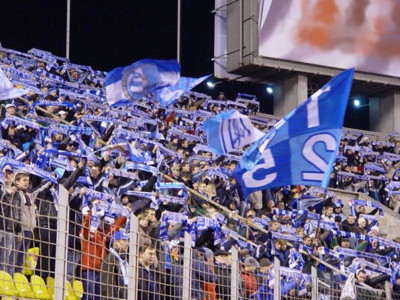
The extent to which different supporters approach football matches in different ways is genuinely quite fascinating. In England the crowd tends to be relatively quite for periods of the game, only getting excited when they’re given reason to by what’s taking place on the football pitch in front of them. As the game reaches its crescendo the supporters may become more active, especially if it’s an important game such as a cup final, but general speaking the noise emanating from the stands ebbs and flows with the action taking place on the turf.
If you head to the continent, however, you’ll experience an entirely different approach to supporting the team. More often than not you’ll find that the crowd in matches in leagues such as the Bundesliga creates almost constant noise, often led from the front by a particularly boisterous supporter with a loud speaker. This constant level of noise might suggest to someone that doesn’t know much about football that the crowd is always behind the team, but wouldn’t that just become white noise to the players after a time? Where English fans will almost certainly give the players they love an extra boost in their legs because of the noise, European players must get slightly bored of the noise.
How, then, might clubs encourage their supporters to get behind the team in a more structured and organised manner? What method could they use to give the players a genuine boost before a ball is kicked? The obvious answer to that question is by introducing an anthem, a specific song that the crowd sings or cheers to in order to generate an atmosphere, even if it is something of a false one. Here we’ll have a look at some of the most famous anthems in football, including how they came about in the first place and which clubs play said anthems before a match.
Liverpool / Celtic – You’ll Never Walk Alone
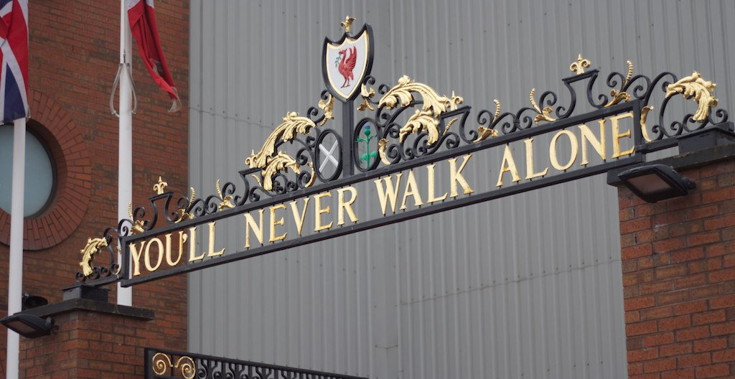
Arguably the most famous anthem in all of football, ‘You’ll Never Walk Alone’ is associated most clearly with Liverpool Football Club. Scottish football fans might well cough and point to Celtic, but it was the Merseyside club that first began to sing the song before matches. The origin of the use of the song from the musical cabaret is a genuinely fascinating one, beginning back in the 1960s when the public address system inside Anfield used to be used to play the top ten songs in the charts. Liverpool supporters got into the habit of singing the number one song of the day, leading to a brilliant video of the Kop singing Beatles songs.
Thanks to The Beatles, Liverpool became a hotbed for British music in the 1960s and Merseybeat was the sound that swept a nation. Gerry & The Pacemakers had formed in 1959 and enjoyed number one hits in 1963 with ‘How Do You Do It?’ And ‘I Like It’, they released ‘You’ll Never Walk Alone’ in October of the same year. That also reached number one and resulted in Liverpool supporters on the Kop singing it for the four weeks it remained there. Before it had even hit number one in the charts, Gerry Marsden, the group’s lead singer, had presented a copy of it to Bill Shankly, the then Liverpool manager, on the club’s pre-season tour earlier in the year. Shankly had loved the song and local journalists had declared it to be the ‘new song of Liverpool FC’.
In 1965 Bill Shankly appeared on the BBC radio program Desert Island Discs, choosing the song as one of the hits he’d be allowed to have were he deserted on a desert island. That cemented the number as a Liverpool anthem, with the club’s appearance in the FA Cup final of that year being one of the first occasions that television cameras caught supporters singing it during a match. Liverpool beat Leeds United 2-1, lifting the trophy for the first time in the club’s history. Perhaps that’s why Reds fans have had an affinity with the club ever since? Other clubs have taken the song on as their own in the intervening years, with the most obvious examples of that being the aforementioned Celtic and the Bundesliga side Borussia Dortmund.
Everton – Z-Cars
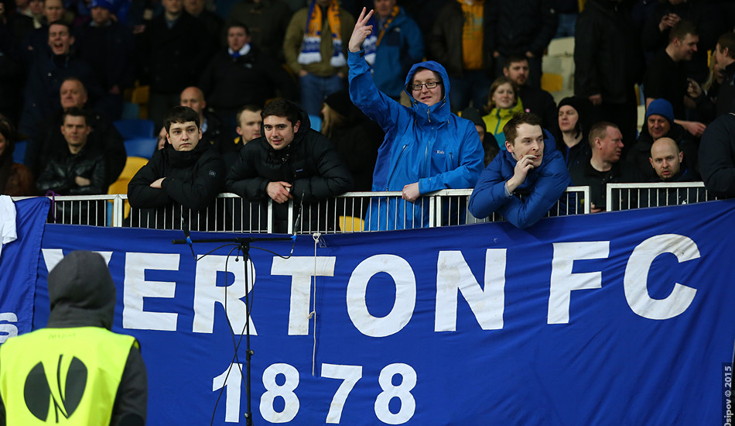
Given that we’re on Merseyside, it makes sense to nip across Stanley Park and pop into Goodison, the home of Liverpool’s rivals Everton. The Blue half of the city doesn’t quite have a raucous anthem in the mould of ‘You’ll Never Walk Alone’, which is sung with such vociferousness by the Anfield Kop that it would make the hairs on the back of your neck stand up, but they do have their own tune that is played as the players make their way out onto the pitch. Based on a traditional old folk song named ‘Johnny Todd’, ‘The Theme From Z-Cars’ was, as the name suggests, the title theme from the 1960s TV show ‘Z-Cars’.
The song reached number eight in the charts in 1962 and was soon adopted by Everton supporters on account of the fact that the TV show was filmed near to the city of Liverpool. At least that’s one theory. The truth is that no one is quite sure why Everton’s players started coming on to the pitch to ‘The Theme From Z-Cars’, with one theory being that one of the TV show’s cast members was an Everton fan and he went to watch the Toffees with some of the cast, so the club played the song over the tannoy in honour of their appearance at Goodison Park. Research carried out by the Everton Heritage Society believes that the playing of the song first began at the start of the 1962-1963 season, a title winning on the for Blues.
Whatever the origins of its playing, it has been blasted out over the PA system at Goodison Park before every home game pretty much ever since, with a few notable exceptions. These include when the club attempted to swap it for the theme from the sci-fi movie ‘2001: A Space Odyssey’. Everton aren’t the only club that come out to the song from the 1960s police drama, of course. Watford adopted the tune in the 1960s because their then manager, Bill McGarry, declared it to be his favourite TV show. Sunderland played it for a time when the club was located at Roker Park, whilst Workington A.F.C.play it because their manager in the 1960s, Ken Furphy, was an Evertonian.
West Ham United – I’m Forever Blowing Bubbles
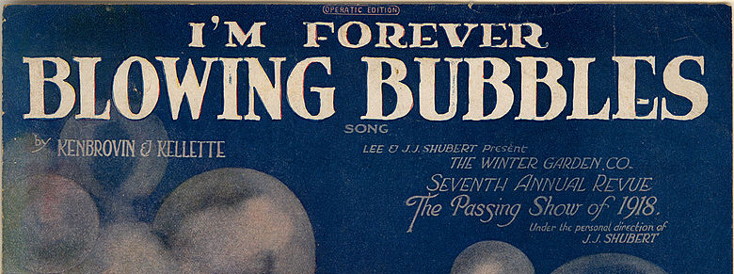
West Ham United have a unique start to their match day experience, playing the song ‘I’m Forever Blowing Bubbles’ whilst artificial bubbles are blown onto the pitch as the players run onto the turf. The song has been popular in America ever since it debuted in 1919, which is a fact that those of us who can only imagine sung with a cockney accent might struggle to understand. Introduced by the club’s former manager Charlie Paynter in the 1920s, the story as to why he brought it to the club is perhaps the most convoluted of all the anthems we’re talking about in this article.
One of West Ham’s players, Billy J. Murray, also played for the local Park School and was believed to have a resemblance to the ‘Bubbles’ character from a painting by Millais that was used in a well-known Pears Soap commercial of the time. Whenever Park School played well, the headmaster would sing ‘I’m Forever Blowing Bubbles’ but with some amended lyrics. The headmaster was friends with Paynter and most likely sang the tune in front of him when Murray was a trialist for the London club. They gave him the nickname ‘Bubbles’ and the song began to be sang by supporters before the club played any of their big matches.
Perhaps for somewhat obvious reasons, the song has never been adopted by any other British football clubs. It has been sung at some opportune moments, however, such as when West Ham held Manchester United to a draw on the final day of the 1994-1995 Premier League season, meaning that Blackburn Rovers won the title despite losing to Liverpool. Their players could be heard singing ‘I’m Forever Blowing Bubbles’ in their dressing room inside Anfield, something that was copied by Arsenal supporters in 2006 when the Hammers beat fellow Londoners Tottenham Hotspur, thereby allowing the Gunners to claim a Champions League spot at their rivals’s expense.
Leeds United – Marching On Together
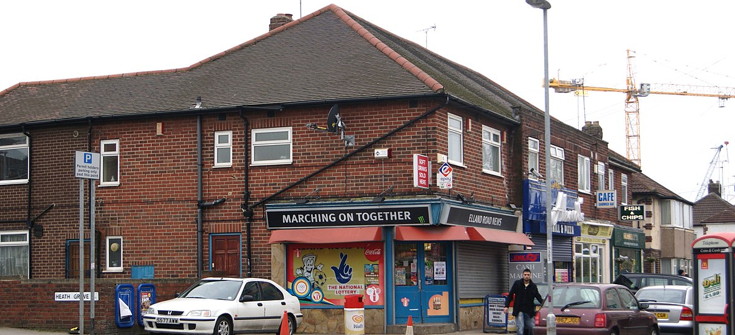
Officially called ‘Leeds! Leeds! Leeds!’ But know as ‘Marching on Together’, this anthem is played before every home game that Leeds United play, as well as at the start of the second-half.
If the link between West Ham United and ‘I’m Forever Blowing Bubbles’ is somewhat convoluted then it’s fair to say that Leeds’s use of this tune is the exact opposite. Les Reed and Barry Mason came up with the original composition back in 1972 as the B-side to the football club’s official song ahead of the 1972 FA Cup Final, imaginatively called ‘Leeds United’.
The official song never really caught on, but supporters really took to the B-side that featured vocals by some of the club’s players and fans. The song peaked at number ten in the charts, staying in the UK Singles Chat for three months in total.
Bizarrely, the song peaked at number ten when it was digitally remastered and re-released ahead of the club’s promotion back to the Championship in 2010. Though no other association football clubs use the song because of its city specific lyrics, other Leeds-based sports teams like the Leeds Rhinos Rugby League side do. The only difference is the removal of the ‘United, United, United’ lyrics from the song.
Manchester City – Blue Moon

Not to be confused with Rodgers and Hammerstein who composed ‘You’ll Never Walk Alone’, ‘Blue Moon’ was a composition written by the prolific song-writing duo of Rodgers and Hart.
It has been a remarkably popular song to cover over the years, with hit versions from the likes of Elvis Presley, Frank Sinatra and Rod Stewart making it into the charts at one point or another. Originally the song of choice for Crewe Alexandra, Manchester City fans took it on as their own theme at the start of the 1989-1990 season when it was common for pop songs to be adopted by football supporters on the terraces.
With yet another link to Anfield, the first time City fans were heard singing it came at the end of the first match of the 1989-1990 campaign when the club’s supporters were kept in after the end of the game and did it to entertain themselves. Since then it was adopted officially by the club, with Manchester City’s public address system blasting out different versions of the song before kick-off throughout the season. Given the fact that City achieved little-to-no success prior to being bought by the multibillionaire Sheikh Mansour and the accompanying lack of support before they started to win stuff, rival supporters will perhaps allow themselves a slight chuckle at the opening lyrics of the song:
Blue moon, You saw me standing alone, Without a dream in my heart, Without a love of my own.
Why Do Football Supporters Sing Anthems?
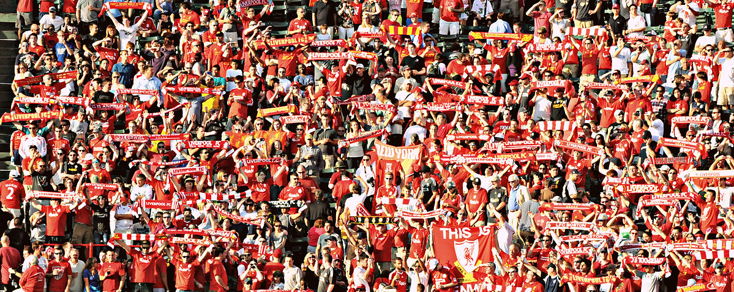
Given the nature of the fact that anthems have become so popular and common at football matches, it’s a fair question to ask why that is the case. In some instances it is surely because of little more than tradition. After all, can supporters really get excited by the theme song from a cop show that hasn’t been on the television for the best part of fifty years? Do young fans of Everton or Watford even understand what Z-Cars was, let alone why the club plays the theme from it before their football matches?
There are other instances, of course, when the song is mostly for the purposes of giving the players a lift. I’m Forever Blowing Bubbles’ might seem ridiculous to non-West Ham supporters, but for the players the combination of the fans’s voices singing the club’s song and the tradition of actually blowing bubbles onto the pitch must be a fun sight to behold. It might not get them as pumped up as the likes of ‘Marching On Together’ does for Leeds United’s players, but there’ll still be something about it that prepares them mentally for the match.
The reason ‘You’ll Never Walk Alone’ is such an enduringly popular song with all but Liverpool, Celtic and Dortmund’s most fierce rivals is that it is an anthem in the true meaning of the word. For Liverpool fans in particular, the lyrics of the song have come to represent an attitude that they talk with them everywhere. The Hillsborough Disaster was a moment that changed football forever, with the club’s song become a mantra as much as anything else. Supporters have tried to live by the words of Oscar Hammerstein II, ensuring that they walk through a storm with their heads held high.
Where the future lies for football anthems remains to be seen. Not every club has one, with the likes of Chelsea attempting to falsely force something upon their supporters before games but failing to get the idea to take off. Will more clubs begin to adopt anthems as the years pass, should something occur organically? Or are we now in a position where the clubs that have anthems have them and those that don’t, don’t? Only time will tell.
